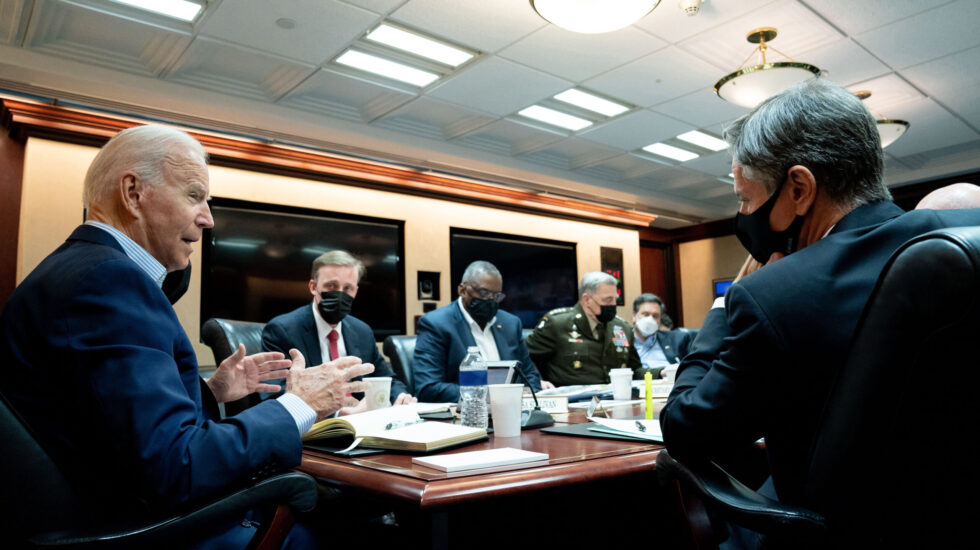American military leaders met via a secure videoconference last Wednesday to discuss an imminent “mass casualty event,” at the Kabul airport, according to POLITICO, but they were unable to secure the gate deemed “highest risk.”
Less than twenty-four hours later, a suicide bomber affiliated with the Islamic State detonated his explosive vest outside that location – the Abbey Gate – as part of a complex terror attack. Thirteen U.S. troops and approximately 200 Afghan civilians were killed.
In the hours before the attack, Pentagon brass and leaders on the ground in Kabul planned to close the Abbey Gate. “But the Americans decided to keep the gate open longer than they wanted in order to allow their British allies, who had accelerated their withdrawal timeline, to continue evacuating their personnel, based at the nearby Baron Hotel,” reports POLITICO.
POLITICO’s exclusive relies on the transcripts of three conference calls involving the upper echelons of America’s military apparatus. It shows that “top officials were raising alarm bells and preparing for a potential attack that they had narrowed down to a handful of possible targets and a 24-48 hour time frame — projections that ended up being deadly accurate.”
POLITICO adds that Defense Secretary Lloyd Austin was particularly attuned to the threat, telling the participants on Wednesday morning’s videoconference, “I don’t believe people get the incredible amount of risk on the ground.”
The White House was also concerned about an attack and empowered the Pentagon to do whatever was necessary to protect American troops.
“Measures to avert an imminent attack included closing two airport gates permanently, notifying Taliban checkpoints of the potential threat and asking them to account for it in their screening procedures, limiting foot and vehicle traffic through a number of gates, and issuing alerts to American citizens warning them of specific threats at specific locations,” POLITICO notes, citing an unnamed official.
But the failure to close Abbey Gate turned out to be catastrophic. The gate was left open so that British evacuees could enter the airport. By the time of the attack, they had not yet arrived.
“Throughout Operation Pitting we have worked closely with the U.S. to ensure the safe evacuation of thousands of people,” a spokesperson for the British Defence Ministry told POLITICO, referring to the effort to evacuate British citizens and Afghans. “We send our deepest condolences to the families of the American victims of the senseless attacks in Kabul and continue to offer our full support to our closest ally.”
POLITICO adds that Central Command chief Gen. Frank McKenzie said the U.S. had little choice but to rely on the Taliban for security help, even as he predicted that they’d be an increasingly unreliable partner as time dragged on.
McKenzie also indicated that the U.S. evacuation would fall short of its goals. “We’re not going to get everyone out. We’ll get 90-95 percent,” McKenzie said, according to POLITICO. The outlet explains “the call notes did not specify if he was talking about American citizens, or everyone who wanted to evacuate.”
The Pentagon condemned POLITICO’s story. Pentagon spokesman John Kirby said in a statement:
This story is based on the unlawful disclosure of classified information and internal deliberations of a sensitive nature. As soon as we became aware of the material divulged to the reporter, we engaged Politico at the highest levels to prevent the publication of information that would put our troops and our operations at the airport at greater risk.
We condemn the unlawful disclosure of classified information and oppose the publication of a story based on it while a dangerous operation is ongoing.
POLITICO said it was not publishing certain sections of the leaked internal deliberations that might jeopardize U.S. operations.



